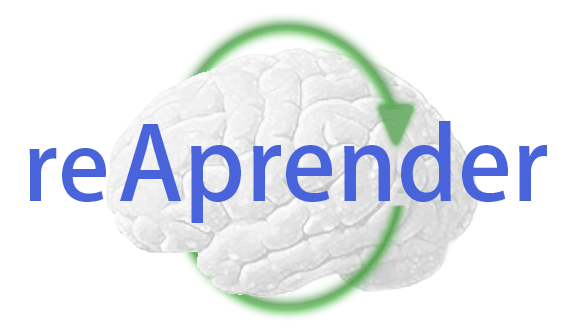Charla “Innovación pedagógica: ideas para avanzar”
También se encuentra disponible la grabación del primer día del evento.
Recursos de profundización
Durante la presentación hago mención de diversas estadísticas, datos y recursos. Aquí se encuentran, organizados según las secciones de la presentación.
Innovación pedagógica: ¿Qué?
Bania, J., & Banerjee, I. (2020). Impact of Covid-19 Pandemic on Higher Education: A Critical Review. Global University Network for Innovation. http://www.guninetwork.org/report/impact-covid-19-pandemic-higher-education-critical-review
Bernal, J. (2017). Evolución conceptual e importancia de la andragogía para la optimización del alcance de los programas y proyectos académicos universitarios de desarrollo rural. Revista Electrónica Educare, 21(1). https://www.redalyc.org/jatsRepo/1941/194150012023/html/index.html
Blaschke, L. M. (2012). Heutagogy and Lifelong Learning: A Review of Heutagogical Practice and Self-Determined Learning. The International Review of Research in Open and Distance Learning, 13(1). http://www.irrodl.org/index.php/irrodl/article/view/1076
Blaschke, L. M., & Hase, S. (2016). Heutagogy: A Holistic Framework for Creating Twenty-First-Century Self-determined Learners. In B. Gros, Kinshuk, & M. Maina (Eds.), The Future of ubiquitous Computing (pp. 25–41). Springer. https://doi.org/10.1007/978-3-662-47724-3
Davis, L. (2018). Heutagogy Explained: Self-Determined Learning in Education. Schoology Exchange. https://www.schoology.com/blog/heutagogy-explained-self-determined-learning-education
Dede, C., & Richards, J. (2020). The 60-Year Curriculum: New Models for Lifelong Learning in the Digital Economy. Routledge.
Duke Learning Innovation. (2020). How can I encourage academic integrity? Duke Flexible Teaching. https://flexteaching.li.duke.edu/a-guide-to-course-delivery/how-can-i-encourage-academic-integrity/
Feathers, T. (2021). Schools are abandoning invasive proctoring software after student backlash. Motherboard, Tech by Vice. https://www.vice.com/en/article/7k9ag4/schools-are-abandoning-invasive-proctoring-software-after-student-backlash
Gratton, L., & Scott, A. (2016). The 100 year life. Bloomsbury Publishing.
Hellemans, K., Abizaid, A., Gabrys, R., McQuaid, R., & Patterson, Z. (2020). For university students, COVID-19 stress creates perfect conditions for mental health crises. The Conversation. https://theconversation.com/for-university-students-covid-19-stress-creates-perfect-conditions-for-mental-health-crises-149127
Hughes, C. (2020). COVID-19, higher education and the impact on society: what we know so far and what could happen. World Economic Forum. https://www.weforum.org/agenda/2020/11/covid-19-higher-education-and-the-impact-on-society-what-we-know-so-far-and-what-could-happen/
IESALC. (2020). COVID-19 y educación superior : De los efectos inmediatos al día después. http://www.iesalc.unesco.org/wp-content/uploads/2020/05/COVID-19-ES-130520.pdf
Johnson, T. (2020). Teaching Through a Pandemic: Cognitive Load, Mental Health and Learning Under Stress. University of Denver Office for Teaching and Learning. https://otl.du.edu/teaching-through-a-pandemic-cognitive-load-mental-health-and-learning-under-stress/
Lee, J. (2020). A Neuropsychological Exploration of Zoom Fatigue. Psychiatric Times. https://www.psychiatrictimes.com/view/psychological-exploration-zoom-fatigue
McGowan, H., Shipley, C., & Friedman, T. (2020). The Adaptation Advantage: Let Go, Learn Fast, and Thrive in the Future of Work. Wiley.
Means, B., & Neisler, J. (2020). Suddenly Online: A National Survey of Undergraduates During the COVID-19 Pandemic. https://doi.org/10.1145/763940.763929
Pohan, C. (2020). Reducing Cognitive Load (and not rigor). University of California Merced, Center for Engaged Teaching and Learning. https://cetl.ucmerced.edu/Cognitive_Load
Rajput, J. (2020). Cognitive overload during the COVID‐19 pandemic: A student’s response to Sewell et al. Medical Education. https://onlinelibrary.wiley.com/doi/10.1111/medu.14302
Rodriguez Hoyos, J. J., & Rúa Ceballos, N. A. (2020). Escenarios de la educación superior antes , durante y después de la crisis suscitada por la COVID-19 Nada es para siempre. Fondo Editorial Politécnico Colombiano Jaime Isaza Cadavid.
Schroeder, R. (2021). Zoom Fatigue: What We Have Learned. Inside Higher Ed. https://www.insidehighered.com/digital-learning/blogs/online-trending-now/zoom-fatigue-what-we-have-learned
Swauger, S. (2020). Remote testing monitored by AI is failing the students forced to undergo it. Think. https://www.nbcnews.com/think/amp/ncna1246769
Ziegler, S., Arias, J., Bosio, M., & Camacho, K. (2020). Conectividad rural en América Latina y el Caribe: un puente al desarrollo sostenible en tiempos de pandemia. https://repositorio.iica.int/handle/11324/12896
Innovación pedagógica: ¿Quién?
Dellot, B., Mason, R., & Wallace-Stephens, F. (2019). The Four Futures of Work Coping with uncertainty in an age of radical technologies. https://www.thersa.org/globalassets/pdfs/reports/rsa_four-futures-of-work.pdf
Martín-Retortillo, T. (2019). Reshaping the Professional and Personal Career. IE Insights.
Martínez, J. (2020). Tus neuronas colaboran (y no abandonan tu cerebro). Javier Martínez.
McGowan, H., & Shipley, C. (2017). STOP Asking What…and Start asking WHY. https://www.linkedin.com/pulse/stop-asking-what-heather-mcgowan/
Innovación pedagógica: ¿Dónde?
Abdul-Jabbar, M., & Kurshan, B. (2015). Educational Ecosystems: A Trend in Urban Educational Innovation. Perspectives on Urban Education, 12(1), 7–13. http://proxy-remote.galib.uga.edu/login?url=http://search.ebscohost.com/login.aspx?direct=true&db=ehh&AN=101703337&site=eds-live
Cavallo, D., Senger, H., & Gomes, A. S. (2016). Inovação e Criatividade na Educação Básica: Dos conceitos ao ecossistema. Revista Brasileira de Informática Na Educação, 24(2), 143–161. https://doi.org/10.5753/RBIE.2016.24.02.143
Choque Larrauri, R. (2009). Ecosistema educativo y fracaso escolar. In Revista Iberoaméricana de Educación (Vol. 4, Issue 49). https://doi.org/Revista certificada por la FECYT
Innovación pedagógica: ¿Con qué?
McGowan, H., Shipley, C., & Friedman, T. (2020). The Adaptation Advantage: Let Go, Learn Fast, and Thrive in the Future of Work. Wiley.
Dede, C., & Richards, J. (2020). The 60-Year Curriculum: New Models for Lifelong Learning in the Digital Economy. Routledge.
Kwik, J. (2020). Limitless: Upgrade Your Brain, Learn Anything Faster, and Unlock Your Exceptional Life. Hay House.
Hawkins, J. (2021). A thousand brains. Basic Books.
Fundación Telefónica. (2014). Las 100 Innovaciones educativas: Proyectos eficaces para fomentar las vocaciones científico-tecnológicas (STEM). http://www.fundaciontelefonica.com/educacion_innovacion/desafio_educacion/las-100-innovaciones/
Fundación Telefónica. (2016). Top 100 Innovaciones educativas 2016: Educar para la sociedad digital. https://doi.org/10.25054/01247905.1611
Law, N., Yuen, A., & Fox, R. (2011). Educational Innovations Beyond Technology: Nurturing Leadership and Establishing Learning Organizations. Springer.
Looi, C.-K., & Teh, L. W. (2015). Scaling educational innovations. Springer.
Perlman, J., Winthrop, R., McGivney, E., Robinson, J. P., Winthrop, R., & McGivney, E. (2016). Millions learning: Scaling up quality education in developing countries. Center for Universal Education. https://www.brookings.edu/wp-content/uploads/2016/04/FINAL-Millions-Learning-Report-1.pdf
Leadbeater, C., & Wong, A. (2010). Learning from the Extremes. Cisco. https://doi.org/10.1787/9789264086319-en
Innovación pedagógica: ¿Por qué?
Barber, M. (2021). Gravity assist : Propelling higher education towards a brighter future. https://ofslivefs.blob.core.windows.net/files/Gravity assist/Gravity-assist-DTL-finalforweb.pdf
Innovación pedagógica: ¿Cómo?
Leal, D. (2011). EduCamp Colombia: Social networked learning for teacher training. The International Review of Research in Open and Distance Learning, 12(3), 60–79. http://www.irrodl.org/index.php/irrodl/article/view/884/1677
Leal, D. (2011). Ambientes Personales de Aprendizaje en el desarrollo profesional docente (pp. 139–165). Centro Ceibal – ANEP.
Leal, D. (2011). Cursos abiertos en línea: ¿un escenario para la gestión personal del conocimiento? Revista do Serviço Público, 62(3), 281–296. http://www.enap.gov.br/index.php?option=com_docman&task=doc_download&gid=3718
Leal, D. (2010). Open online courses in Colombia: Report of an educational and technological experiment. http://openaccess.uoc.edu/webapps/o2/handle/10609/5101
Leal, D. (2010). Aprendizaje en un mundo conectado: Cuando participar (y aprender) es “hacer click” (A. Piscitelli, I. Adaime, & I. Binder (eds.); pp. 163–182). Editorial Ariel / Fundación Telefónica. http://www.fundacion.telefonica.com/debateyconocimiento/eventos/eventos/2010/mayo/pdf/EVEN_DYC_ESP_El proyecto Facebook_y_la_posuniversidad_07_05_10.pdf
